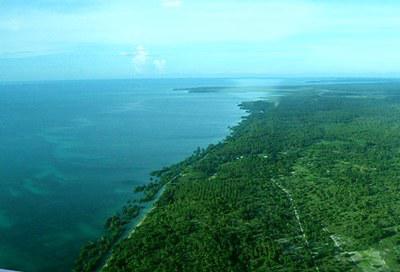Bagamoyo Tanzania Demonstration Project: Integrated Sustainable Tourism Destination Planning
In Tanzania, tourism is one of the fastest growing sectors of the economy. The coastline is over 1,424 km long, and includes the islands of; Zanzibar, Pemba and Mafia, which offer a wide array of natural, cultural, historical and archaeological attractions. The demonstration project is called; Integrated Sustainable Tourism Destination Planning, and aims to; reduce environmental impacts of the tourism industry, encourage markets and product development for ecotourism enterprises, and streamline environmental regulation to ensure it is efficient and cost-effective.
During the first three decades following independence, tourism was given a very low profile, but the industry has been much more actively promoted since the promulgation of the National Tourism Policy in 1991. This explains the growth in visitor arrivals, from 153,00 in 1990 to 564,000 in 1999, before decreasing to 459,000 in 2000 and increasing again to 576,198 in 2003. The industry accounted for around 16% of the GDP in 2001/ 2002 with earnings of US$ 730 million in 2003. For years Tanzania used to rely mostly on wildlife tourism, but now with increasing demand for cultural and coastal tourism, the coastal zone potential is likely to be exploited intensively. This coastal zone offers diversified but rich ecosystems that can serve as potential tourism attractions: natural sand beaches found at various places along the coast (e.g. Bagamoyo, Mafia) ;the great variety of flora and fauna of the coastal zone; an extensive coral reef; marine parks; forest reserves and national parks (e.g. Saadani).
At the end of the planning phase for the COAST project (mid 2006) each partner country had produced (with consultant support) a narrative project document describing in general terms the proposed demonstration project(s). There was no logical framework, no work plan, and only a total budget figure (see below) to guide stakeholders in beginning to implement the project. From January 2009 through to June 2009, based upon a one week visit by the Technical Coordinator to each partner country (during the Inception period of the COAST project) a revised narrative, new logical framework, first year work plan and indicative GEF support budget were developed and discussed. Subsequent to each country visit further support has been provided through email discussions. The demonstration project document now provides a more concise definition of the activities and outputs which are expected to be undertaken at the three sub sites in the Tanzania demonstration project. This short note highlights what are foreseen to be the main challenges in now starting to implement the work. This paper has been written as a subsidiary contribution to the general overview provided in the Inception Report.
For more details view here
Theme: Eco-tourism, Reef and Marine Recreation Management, Environmental Management Systems
Management Team
TEAM
NAME
DEMO PROJECT COORDINATOR
Mr. Thomas J CHALI
TOURISM FOCAL POINT
Mr. Deograsias MDAMU
ENVIRONMENT FOCAL POINT
Dr. Julius NINGU
- See more at: http://coast.iwlearn.org/en/countries/tanzania-demonstration-project-integrated-sustainable-tourism-destination-planning#sthash.YOQz5b2y.dpuf
| Photo | |
|---|---|
 |
|
| Data | |
|---|---|
| Year | 2014 |
| Reporting date | Jun-14 |
| Related sites |
|---|

























